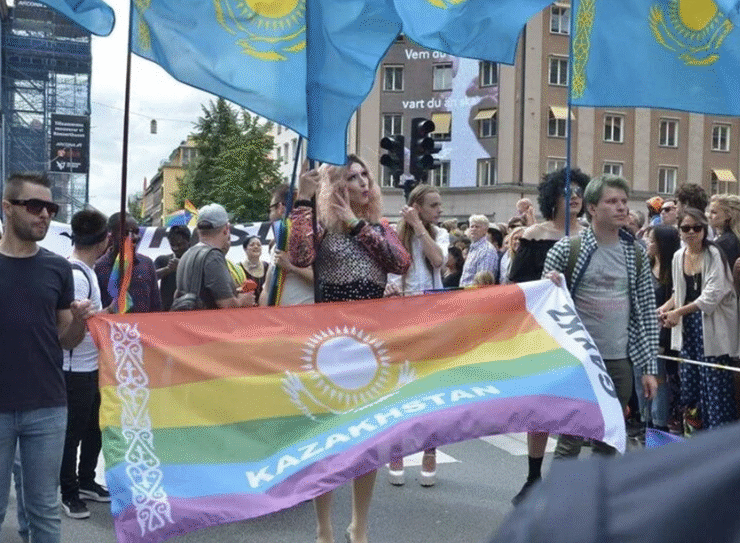FIFA Sides with LGBTQ Censorship in Qatar

Mike is a freelance writer, environmental engineer, and public speaker…
The Fédération Internationale de Football Assocation (FIFA) World Cup, held every four years, brings together soccer teams from around the globe in the planet’s most watched single athletic event.
Typically a celebration of sportsmanship, this year’s tournament, held in Qatar, has been marred in controversy since its announcement in 2010. Thousands of migrant workers from South Asia and Africa suffered sweltering temperatures to construct the series of eight stadiums and infrastructure serving this year’s event. An estimated 400 to 500 of these workers died during construction.
Along with the now-infamous humanitarian conditions, international spotlight has focused on this first Middle Eastern host country’s strict anti-LGBTQ policies, where homosexuality is illegal and is punishable by up to three years in prison.
Protesting these policies in an act of solidarity with the LGBTQ community, members of several European teams began donning OneLove armbands during the World Cup’s earlier games. The armbands, meant to promote messages of inclusion for people of different genders and sexual orientations, were initially thought to receive minimal pushback; however, FIFA then announced just hours before games that captains of teams sporting the bands would be given yellow cards. Facing prospects of being unable to play, the teams were forced to back down.

One organization, the Koninklijke Nederlandse Voetbal Bond (KNVB, or Royal Netherlands Football Association), states: “As previously announced, the KNVB would have paid a possible fine for wearing the ‘OneLove’ captain’s armband, but that FIFA wants to punish us on the field for this has never been seen. This goes against the spirit of our sport that connects millions of people. Together with the other countries involved, we will take a critical look at our relationship with FIFA in the coming period.”
Furthering the controversy, FIFA also required removal of the word “Love” from the Belgian team’s uniforms, despite this message being unaffiliated with the OneLove campaign.
FIFA president Gianni Infantino’s commentary on the censorship matter, and the larger issues surrounding this year’s World Cup host nation, have largely oscillated between deflection and defiance. Initially telling the competing teams to “focus on the football,” he later attempted to smooth over FIFA’s complacency with Qatar’s anti-LGBQ laws by stating: “How many people were prosecuted in Europe? Sorry, it was a process. We seem to forget.”
Perhaps what Infantino should not be forgetting is that changes to laws and prejudice require bold dialogue and shifting the focus onto current issues—not looking backwards for justification of inhumane actions. OneLove armbands may be only symbolic to some, but to LGBTQ communities in countries like Qatar, opportunities to reexamine life-threatening policies are rare and invaluable.
The controversies surrounding this year’s World Cup, an event meant to unite countries around the world in the spirit of competition, begs the question to many of just what sacrifice to humanitarian conditions and freedom of expression should be acceptable by fans, attendants, and athletes. Soccer brings passion to viewers worldwide, and certainly, outside of these events, this is an exciting time for many. However, FIFA’s actions, which could have championed equality and integrity on the world stage, have unfortunately not been worthy of a win.
What's Your Reaction?
Mike is a freelance writer, environmental engineer, and public speaker in Denver. He seeks to bring people together through inspiring topics, humor, and exploring the possibilities of existence.










